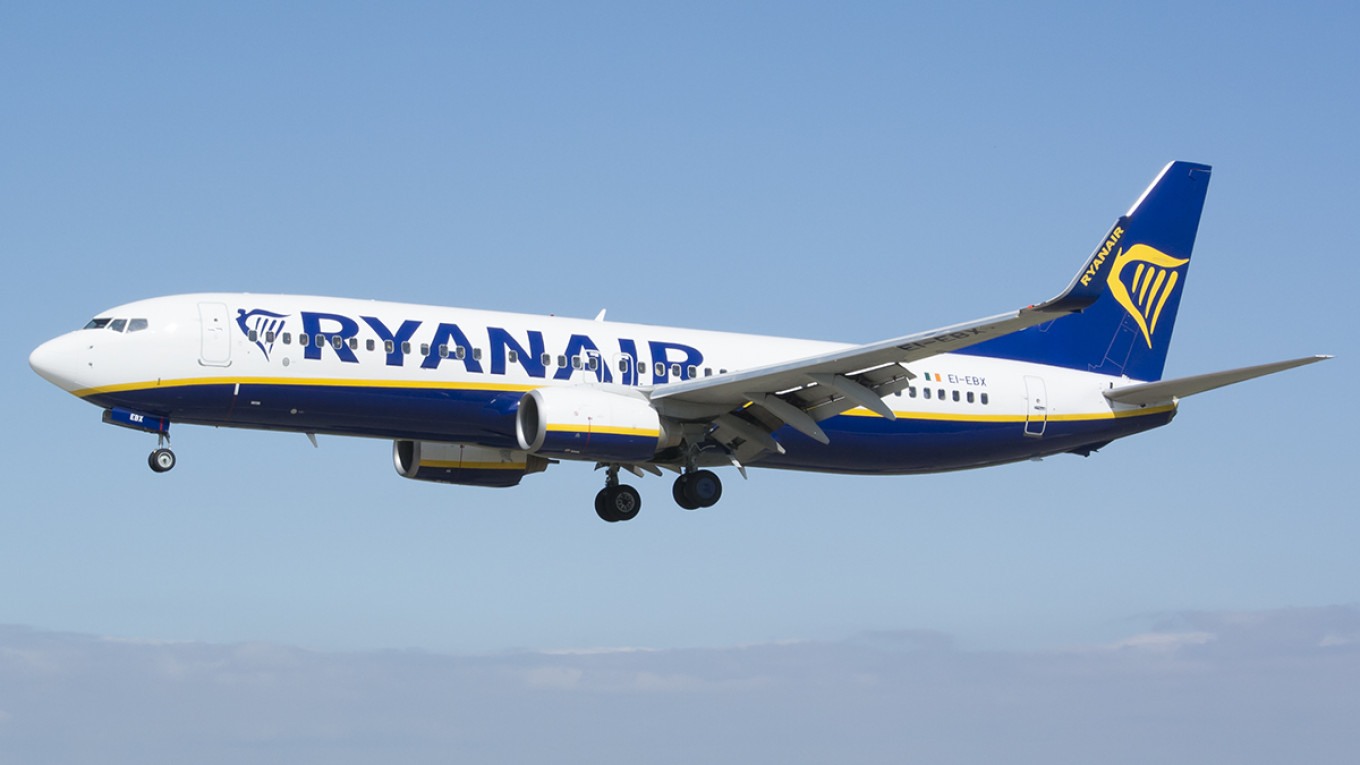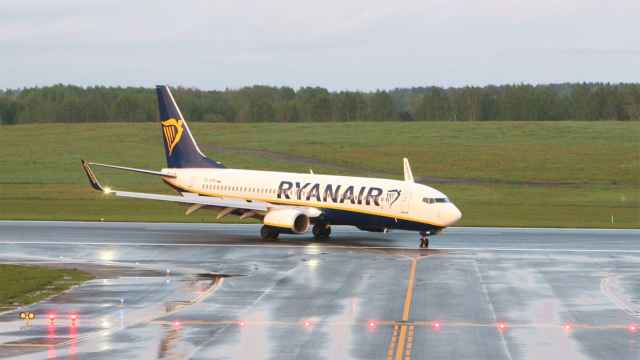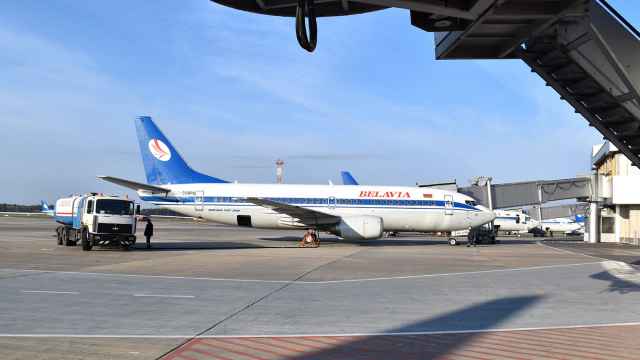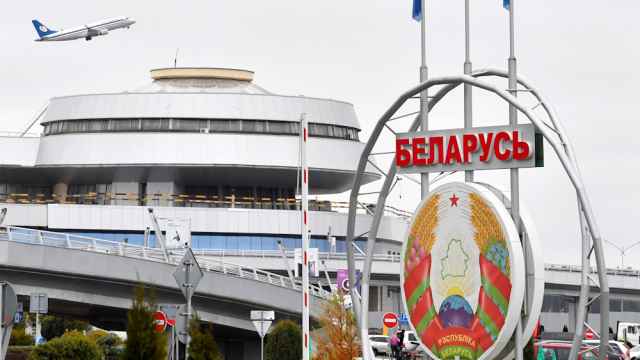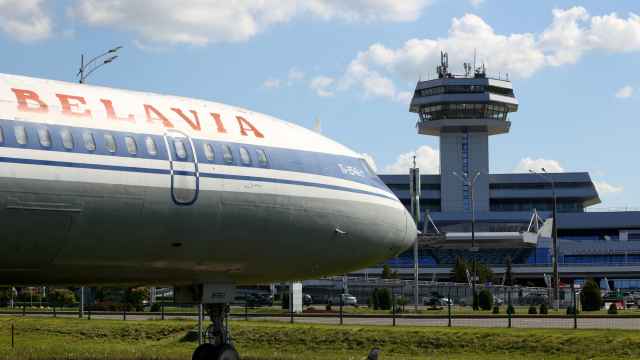Ryanair chief Michael O'Leary said Tuesday he opposes a long-term ban on flights over Belarus after Minsk forced his airline's plane to land and detained passengers.
Belarusian traffic controllers told Ryanair pilots to divert an Athens to Vilnius flight on May 23, citing a bomb threat that proved to be false and scrambling a military jet to accompany the plane.
On landing, Belarus detained two passengers — opposition campaigner Roman Protasevich and his Russian girlfriend — sparking global outrage.
Britain and the European Union responded by telling airlines to avoid Belarusian airspace and banning the ex-Soviet country's flagship carrier Belavia.
Giving evidence to the British parliament's Transport Select Committee, O'Leary said the plane was forced to land on false pretences in what was "clearly a premeditated breach of all the international aviation rules."
But he argued that the international response to halt flights over Belarus was not tenable in the long-term.
"This is not in our long-term interests, of the industry, or in our passengers' best interests," he said.
"UK citizens will be disrupted as a result of long-haul flights between the UK and Asia, for example, now having to fly around Belarus."
"It is a very dangerous territory we are in, if we're going to start politicizing overfly and flying rights over any country," he said.
The chief executive of the UK's Civil Aviation Authority, Richard Moriarty, said he agreed with O'Leary on the need "to get back to what is effectively the rule of law... the protocol of civil aviation around overflights."
The incident is currently being investigated by the United Nations' air transport agency, the ICAO, which is due to issue a report in the coming weeks.
"An aircraft was brought down under false pretences using Minsk ATC (air traffic control) and it seems clear that certainly two passengers were removed against their will," said O'Leary.
"If it is the case that this was a forced diversion under pretext, that really is an exceptional event in the last 70 years," said Moriarty.
Belarus' ambassador to London, Maxim Yermalovich, declined an invitation to give evidence to the MPs.
But in a statement he criticised Britain's decision to suspend Belavia's operating permit, saying it went "far beyond the spirit of cooperation."
Belarus has paraded Protasevich in front of television cameras, issuing "confessions" which his family and supporters say were made under duress.
The 26-year-old activist was one of the founders of Nexta, an opposition Telegram channel which galvanised demonstrations against authoritarian president Alexander Lukashenko.
Belarus's exiled opposition leader Svetlana Tikhanovskaya was to speak to the British lawmakers on Tuesday afternoon.
A Message from The Moscow Times:
Dear readers,
We are facing unprecedented challenges. Russia's Prosecutor General's Office has designated The Moscow Times as an "undesirable" organization, criminalizing our work and putting our staff at risk of prosecution. This follows our earlier unjust labeling as a "foreign agent."
These actions are direct attempts to silence independent journalism in Russia. The authorities claim our work "discredits the decisions of the Russian leadership." We see things differently: we strive to provide accurate, unbiased reporting on Russia.
We, the journalists of The Moscow Times, refuse to be silenced. But to continue our work, we need your help.
Your support, no matter how small, makes a world of difference. If you can, please support us monthly starting from just $2. It's quick to set up, and every contribution makes a significant impact.
By supporting The Moscow Times, you're defending open, independent journalism in the face of repression. Thank you for standing with us.
Remind me later.


